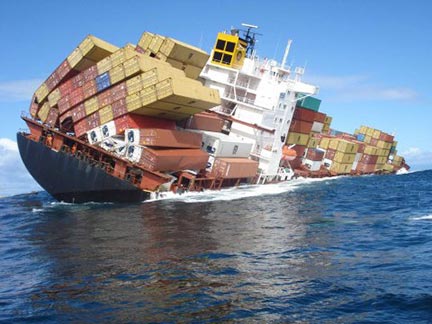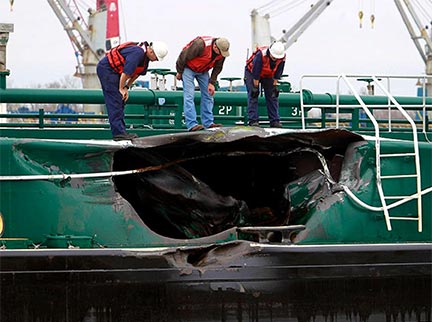Maritime Accident Causes
Work at sea is dangerous. To be safe, workers as well as ships must be seaworthy. Should a maritime accident occur, a vessel may be far from aid. When a crew member suffers serious burns or is harmed by an explosion, medical help may be delayed. The same would hold true for a ship that capsized in extreme weather or took on water because of poorly stored cargo.
Assistance may be far away while a boat is foundering in disastrous weather. Collisions may occur if the lookout is not properly doing his job or if navigational instruments are not used as they should be.
There are many causes of maritime accidents. While some are unpreventable, like severe weather, others are caused completely or in part by negligence. When negligence causes or contributes to a maritime accident, the injured worker can seek compensation for his injuries and loss.
Statistics show that a large percentage of maritime accidents are caused by human error. Because the conditions at sea are harsh, crew members must be well trained and alert so they can avoid catastrophes from happening.
Additional Sources of Information
Human Error and Marine Safety : The shipping industry has focused on improving ship structure and the reliability of ship systems in order to increase efficiency and productivity while reducing casualties. Yet the maritime casualty rate is still high. It is because ship structure and system reliability are a relatively small part of the safety equation. The maritime system is a people system, and human errors figure prominently in casualty situations.
An Empirical Survey on the Role of Human Error in Marine Incidents: The shipping industry has focused on improving ship structure and the reliability of ship systems in order to increase efficiency and productivity while reducing casualties. Yet the maritime casualty rate is still high. It is because ship structure and system reliability are a relatively small part of the safety equation. The maritime system is a people system, and human errors figure prominently in casualty situations.
Reasons for errors might include:
- - Disrupted sleep patterns
- - Extreme fatigue
- - Inexperience
- - Long voyage cycle time
- - Long working hours
- - Negligence
- - Onboard relationships
- - Poor judgment
- - Recklessness (including intoxication)
- - Stress and work pressure
Types of Maritime Accidents
Offshore maritime workers face a number of different dangers. Of course, a crab fisherman working out at sea for months at a time will face different risks than someone working on an offshore oil rig.

But, one thing is certain, the maritime industry, across the board, is dangerous. Some of the different types of accidents include:
- - Capsizing
- - Collision of vessels with each other or a permanent structure
- - Commercial diving casualty
- - Dangerous listing due to imbalanced cargo
- - Dangerous shifting of cargo, sending cargo into vital parts of the ship’s structure
- - Equipment malfunctions
- - Explosions
- - Extreme weather
- - Fires
- - Foundering
- - Grounding (usually results from failure to properly navigate the vessel through channels, sand bars, and sharp turns)
- - Ice damage
- - Inferior stowage
- - Lack of suitable navigational aids
- - Poor construction design
- - Steering failures
- - Structural failures
- - Transport of dangerous goods

Contact a Maritime Injury Lawyer
If you are involved in a maritime accident, you have the right to be compensated for your injuries and financial losses. To schedule a free consultation with an experienced maritime lawyer contact us today by calling (800) 773-6770 or filling out our Free Case Evaluation Form.
back to top




